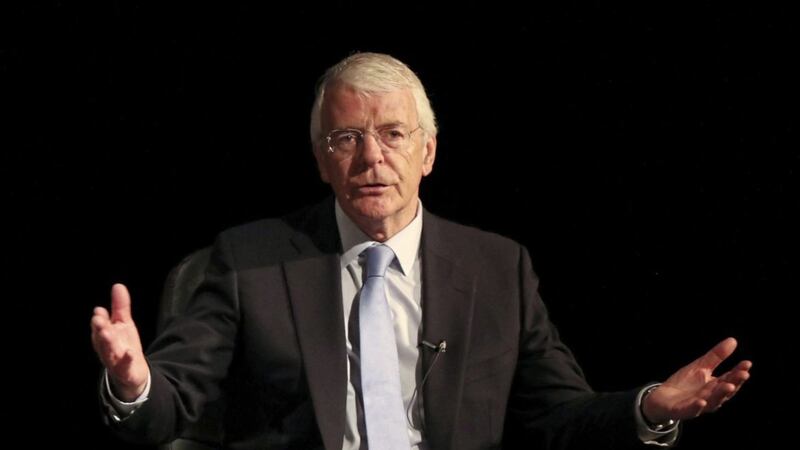Some years ago I was admitted to Number 10 Downing Street for the first time, as part of a media contingent.
Tony Blair was the prime minister of the day and there was a joint press conference taking place with Taoiseach Bertie Ahern.
I didn’t get as excited as Leo Varadkar, who said more recently that it was “a little thrill” to visit Number 10 and he recalled the scene in Love Actually where Hugh Grant as prime minister dances down the stairs.
But it was an interesting experience all the same, with much to see in that historic building. However, the view of the garden through a back-window remains my most vivid memory.
Someone pointed out a brown streak, best described as “rust-coloured”, on the back wall. I was told this was caused by one of the mortar-bombs launched by the IRA on February 7, 1991. The PM at the time, John Major, was chairing a meeting in the Cabinet Room to discuss the conflict with the Iraqi forces under Saddam Hussein.
There were a lot of big names at the table that morning and, if the IRA had hit their target, virtually the entire world would have condemned it outright except for Provo supporters. It would doubtless have put a spring in Saddam’s step also.
Thankfully the Provisional IRA campaign is over, although there are still a few other groups attempting to get their own version of it under way. Someone should tell them there is no need to plant bombs to advance their cause: Brexit is doing a much better job of tearing the British political system apart at the seams – and it’s all self-inflicted.
Memories of my Number 10 experience came back last week with the arrival of John Major in Ireland to take part in a number of functions. One of them, which I attended, was an address he gave to the Institute for International and European Affairs (IIEA) in Dublin. Time was when such a public appearance by a former British prime minister in Ireland’s capital city – if it took place at all – would have been an occasion for protests and heavy protection. I didn’t even see a placard outside the venue – and although no doubt there was security, it was suitably unobtrusive.
Major’s delivery was smooth, with no hemming and hawing and he responded to every question without hesitation. His views on Brexit are well-known and he didn’t have a good word to say about it.
Listening to him for almost an hour, my growing feeling was that another referendum is the only solution. The wording would need to be carefully chosen, but the question in essence should be: “Do you still want the United Kingdom to leave the European Union?” Given the complexities that have emerged and the ensuing political turmoil, the answer would surely be a resounding “No”. In other words: “Brexit seemed like a good idea at the time but we didn’t expect the process would make life so difficult.”
In terms of political negotiation, Brexit is the biggest event of its kind in British politics since what is known as the “Peace in our time” deal (actually it was “for” our time) between Neville Chamberlain and Hitler in 1938. You wouldn’t equate the Eurocrats with the Nazis but, in both cases, the British were surprisingly naïve.
If there is no way of preventing Brexit from finally taking place, then let us all try to minimise the damage. In political terms it is a gift from the gods to the Democratic Unionist Party. The proposal for a “backstop” between the two parts of this island couldn’t have come at a better time for the DUP, relegating the Renewable Heat Incentive/’Cash-for-Ash’ imbroglio to a sideshow.
London, Dublin and Brussels need to get into 1998 mode. In the talks leading to the Good Friday pact there were issues that seemed as if they could never be overcome. Remember John Taylor’s forthright declaration that he wouldn’t touch the draft agreement with a forty-foot pole? Not to mention, back in 1985, Rev Ian Paisley’s “Never, never, never” proclamation against the Anglo-Irish Agreement?
Brussels, Dublin and London should apply themselves to finding a way to dispel unionist concerns about the north’s constitutional status whilst taking into account the fears of many on all sides that the return of customs posts will generate a resurgence of violence. Maybe we should invite George Mitchell back.
As a nationalist I am delighted to see Brussels taking such a firm line against a hard border but, as an advocate of all-island consensus leading to ultimate unity, I think it is important to keep the unionists happy or at least calm. We need to go forward to a bright future, not back to 1912.








